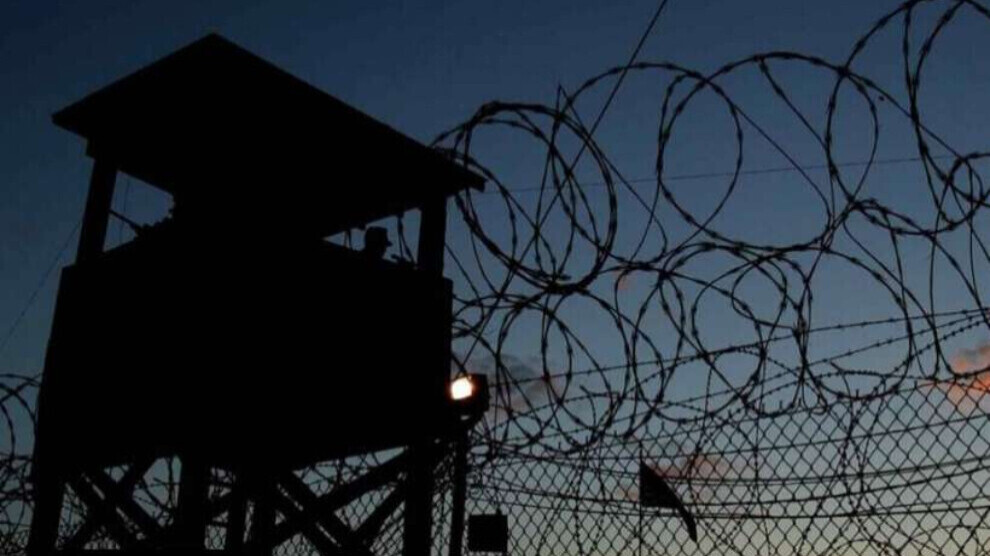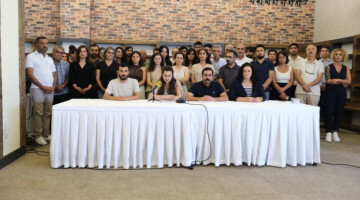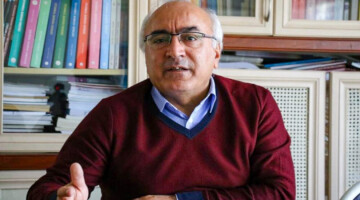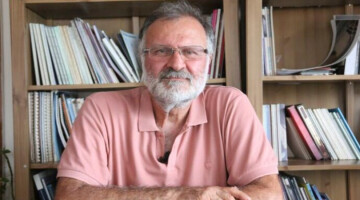The Legal Commission of the Human Rights Association (IHD) Antalya Branch denounced the situation and practices in prisons in the city. The report also includes the application to IHD by Sıdıka Erduran, the wife of Erdoğan Erduran who was released from Antalya L Type Closed Prison.
IHD stated that Erduran, who is a cancer patient, was placed in the quarantine ward, where many risk-bearing people are kept in the same place.
In the report, which stated that Erduran stayed with 28 risk-bearing people in the quarantine ward numbered C-15 and got coronavirus and was treated in the hospital, it is further said that "Five more people from the same ward were tested positive. According to the information we obtained externally, in the quarantine ward 15 people were treated in the hospital. It was not possible to get information about how many people were infected with the virus and whether there were people who were not taken to the hospital even though they were infected.”
In line with the information provided by the applicant, the report emphasized that the 'quarantine' conditions in which prisoners are required to be sent to normal wards after being kept under quarantine are not only a risk factor in themselves but also constitute a violation of the right to life. Reports that all prisoners who should be isolated when they come from outside are put together should be investigated absolutely and urgently, it said.
In the report of the IHD, it is noted that similar information about the quarantine wards of the Alanya L Type Closed Prison had already been received by their association.
The following information is included in the report: "A healthcare worker who wants to remain anonymous stated that the prisoners who have been recently arrested or those transferred from prison to Alanya Training and Research Hospital for examination, and even those who tested positive for Covid-19 were hospitalized side by side in the same 'prisoner wards' in the hospital. Private security hospital rooms, called 'prisoner wards' and used for treatment of prisoners and convicts, were far from meeting the needs of sick prisoners before the epidemic in recent years, when the number of prisoners increased extraordinarily, and therefore, sick prisoners were sometimes kept waiting for referral for months. Moreover, there were many complaints that reached our association that the sick prisoners could not be treated and transferred to the hospital. This practice arising from overcrowded prisons is a direct violation of the right to life. While prisoners should be kept in solitary isolation in order to protect themselves and other prisoners' health, dozens of risk-bearing prisoners are put in the same ward by applying such a practice called "quarantine ward".
It is also pointed out that searching the wards several times a week in prison increases the risk of getting coronavirus, although there are no open meetings with lawyers and families due to the epidemic and the prisoners are not likely to contact outside.
It is also noted that while the two-hour time limitation for bathing and laundry, which was previously imposed in the already full wards is a problem in itself, a quota of 60 liters of hot water is set for each prisoner to take a shower and to wash clothes twice a week.
The report, which stated that a quota is set for cold water in a way that would put the hygiene of the wards and prisoners at risk, further includes; "While all measures related to Covid-19 are said to have been taken, putting a water use quota that did not exist before prevents the prisoners from providing personal hygiene, let alone implementing the precautions".
In the report, the following suggestions regarding the existing problems are listed:
* Political parties with parliamentary group, lawyer MPs, Parliamentary Commissions on Human Rights, Health and Justice should review quarantine conditions of prisoners in Antalya and if possible throughout Turkey.
* In hospitals, the practice and intensity in the rooms where prisoners are treated, called "prisoner wards", should be examined.
* It should be examined how the treatment processes of serious patients are affected by this intensity.
* The allegations that the life safety of prisoners is endangered by arbitrary searches should be investigated.
* In order to increase public awareness on these issues, it can be ensured that parliamentary questions are submitted to the Assembly, and communication with the Ministry of Justice and the Ministry of Health are realized.
* By contacting the TTB (Turkish Medical Association), it could be requested that the Human Rights Commission investigate the issue and take necessary actions.
* Specifically for Antalya, MPs for the city could be provided with information. We believe that Antalya and Alanya Chief Prosecutor's Offices and Provincial Health Directorate could be informed and requested to intervene.














